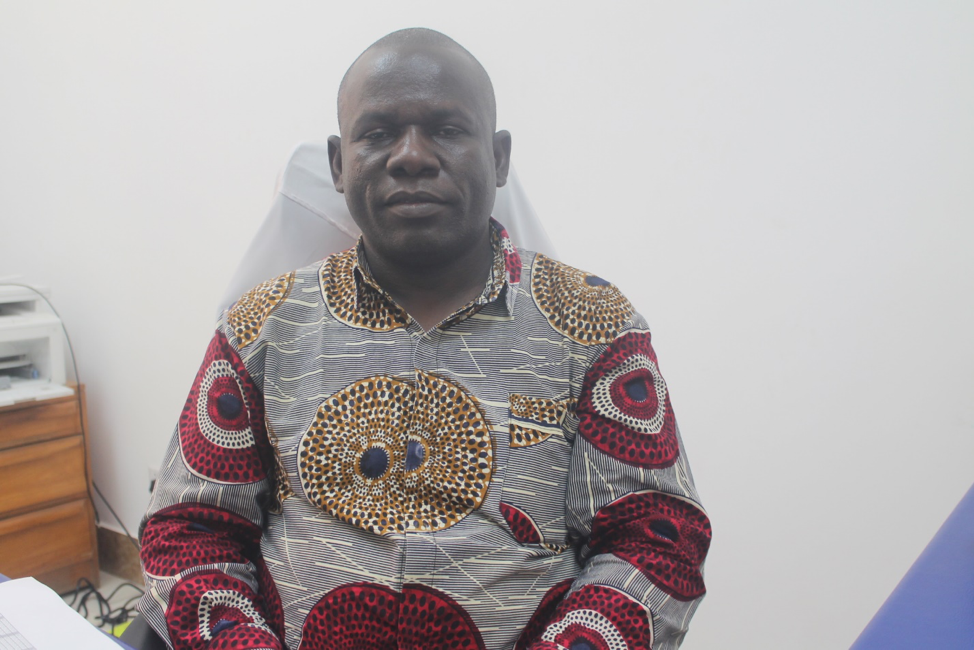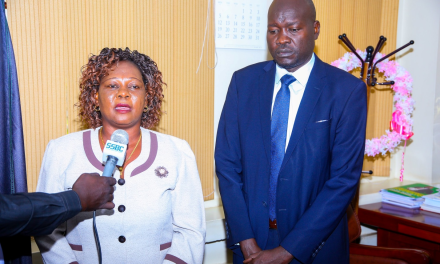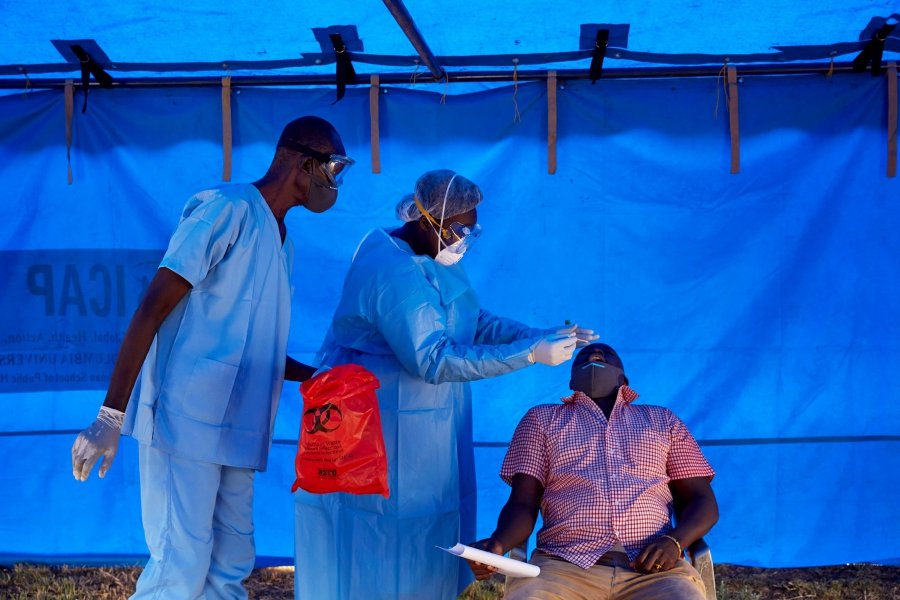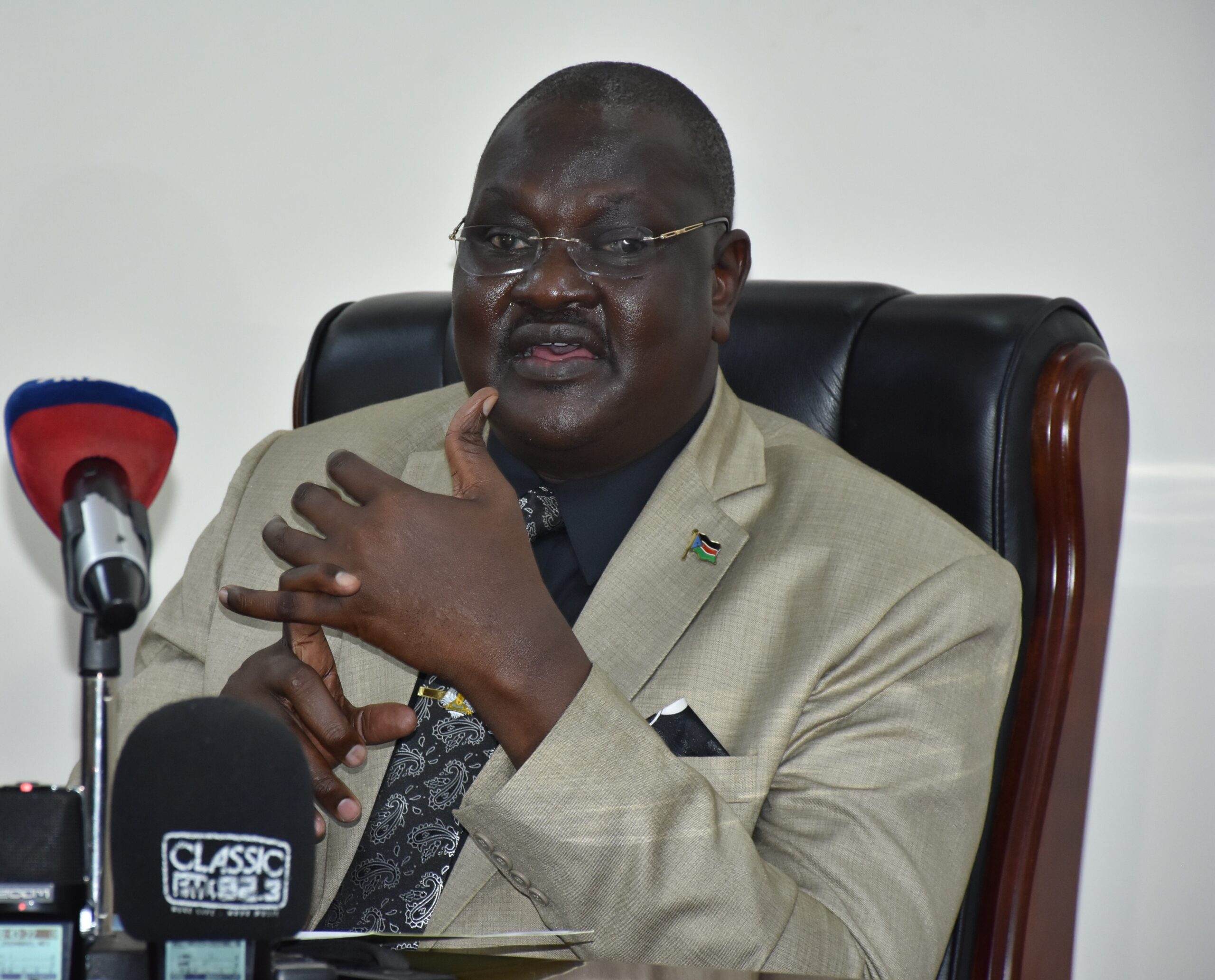
China-aided laboratory eases diagnosis of diseases in South Sudan
By Denis Ejulu
Charles Mazinda, laboratory manager at Juba Teaching Hospital in the South Sudan capital has over the years seen tremendous changes at the country’s largest hospital.
Since the opening of the out-patient ward in 2019 that now houses a modern laboratory fully equipped with standard equipment donated by the Chinese government, Mazinda says the facility has transformed testing and diagnostic services.
“The new laboratory is well equipped with standard equipment and if we are able to use all these equipment here, we will be able to provide most of the testing and diagnostic services that are required by our patients,” he told The Juba Echo in Juba last week.
Mazinda is also hopeful for the first time of the prospects of several South Sudanese laboratory interns currently attending training under supervision of Chinese laboratory technician Zhu Zhijun.
Zhu, a 41 year-old specialist is a member of the 9th batch of Chinese medical team that arrived in the country in September this year to offer medical services and capacity building at Juba Teaching Hospital.
Zhu is the first Chinese laboratory technician to work in the youngest nation, and already his impact is being noticed and appreciated by his South Sudanese colleagues after spending three months at the health facility.
He not only supervises his interns on sample collecting but helps them in learning diagnosis of several ailments, especially on malaria which remains the biggest ailment in the country.
“The interns do sample collecting and I do the diagnosis. I specialize most on malaria diagnosis because it remains the biggest ailment in South Sudan,” says Zhu.

Charles Mazinda, laboratory manager at Juba Teaching Hospital
Adding that on daily basis he is able to diagnose about 30 samples collected from patients.
Thanks to the modern equipment like clinical chemistry analyzer and Hematology analyzer in the laboratory.
Chemistry analyzers are medical laboratory devices used to calculate the concentration of certain substances within samples of serum, plasma, urine or other body fluids.
However, there are some limitations as most of these functioning equipment are now redundant because the stock of regents that were supplied in small quantity got finished, according to Mazinda.
“We cannot find the regents on the local market not even in Uganda,” he adds.
Never the less, Mazinda remains optimistic of the internship training that he hopes will graduate more laboratory technicians to fill up gaps in health facilities across the country.
Zhu will soon take charge of operating the first COVID-19 nucleic acid testing machine when it arrives at the facility from China.
“The next step is when the machine for testing COVID-19 arrives here I will be in charge of conducting testing. This will help boost South Sudan’s capacity to test for COVID-19,” says Zhu.




































